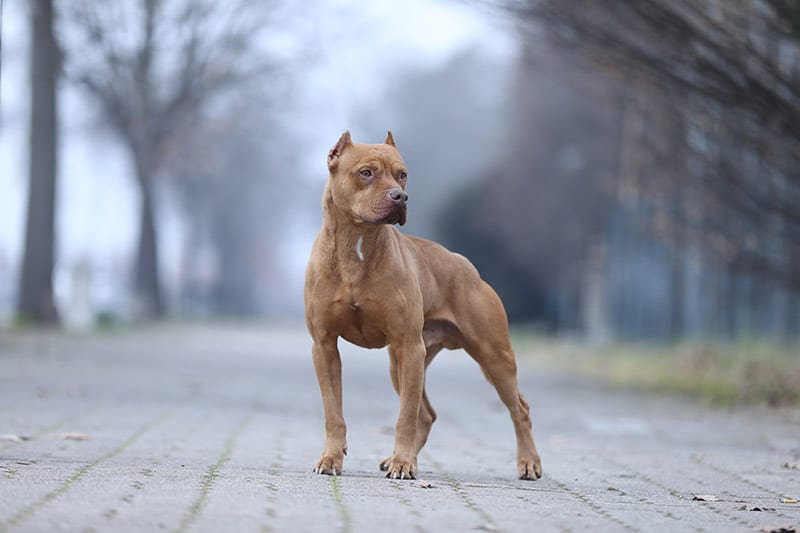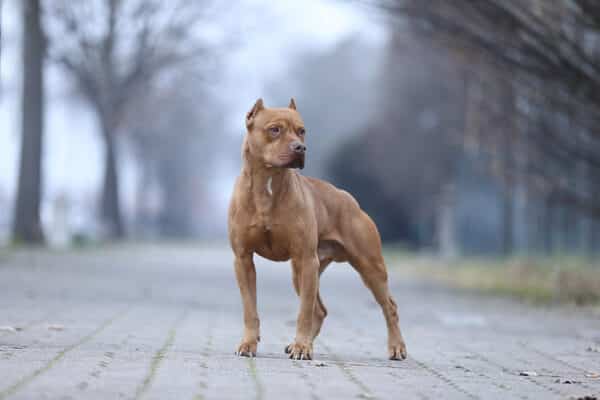If you turn on the news for too long or look into different city ordinances, it won’t take long to realize that Pit Bulls have a terrible reputation. If you listened to the hype, you would think these pups are constantly going after small children and terrorizing cities, but that couldn’t be further from the truth.
Pit Bulls can be amazing family dogs, and while they have a bad reputation, it’s an unfair one. Pit Bulls are loving and affectionate dogs, so where does this bad reputation come from? We’re glad you asked.

Why Pit Bulls Get a Bad Reputation
While Pit Bulls are not aggressive dogs by nature, there’s no doubt that they often carry an unearned bad reputation. But where does this reputation come from? Well, the truth is that there are several reasons Pit Bulls get a bad rap, and while this doesn’t make them bad dogs, it does mean the unearned reputation probably isn’t going anywhere any time soon.
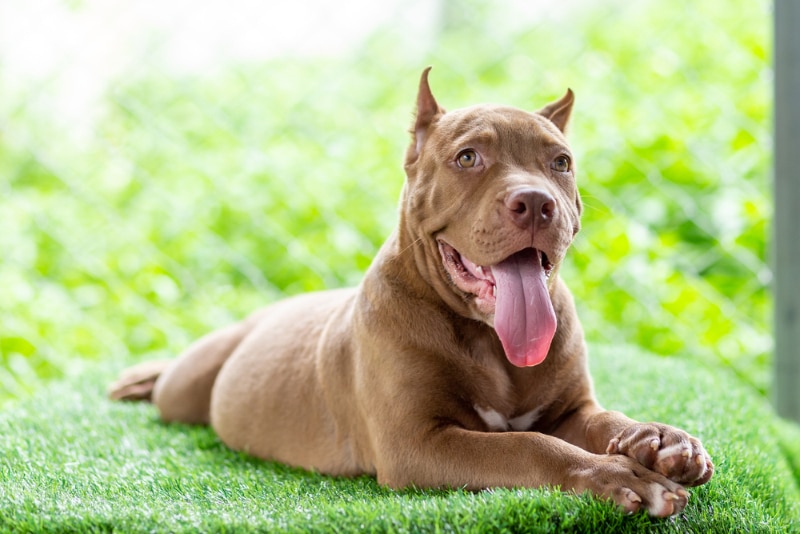
Pit Bull History
Pit Bulls are believed to be descendants of the now extinct Mastiff called the Bullenbeisser. This large and formidable dog was an expert fighting dog, earning accolades in the fighting arena and hunting. Pit Bulls are smaller than the Bullenbeisser, but they’re more agile.
With that said, keep in mind that “Put Bull” is not actually a recognized breed, but a broad term that encompasses several different breeds, like the American Staffordshire Terrier, American Pit Bull Terrier, Bull Terrier, and others. However, all these dogs tend to get lumped into the same group based on appearance.
During the 1980s, dog fighting became a very popular “sport.” Even though it was completely unethical, Pit Bulls were the dog of choice for dog fighting, and it destroyed their reputation. Unfortunately, this reputation remains, even though this breed is not naturally aggressive and the sport is now a federal offense in the US and many other countries across the globe.
Poor Training
There’s a saying out there that there aren’t bad dogs, only bad owners. And for the most part, that’s completely true. And just like how people preferred to use Pit Bulls as fighting dogs, there are still those people who want a Pit Bull because they want them to be aggressive, or at least look that way.
It’s not the Pit Bull’s fault if the owner has trained them to show aggression, but that won’t stop them from becoming aggressive when the owner encourages it.
And even if the owner doesn’t realize they’re encouraging aggressive behavior, poor training habits could be a cause. Things like negative reinforcement and actively encouraging them to intimidate unfamiliar people and animals are ways an owner could wind up accidentally encouraging negative behaviors.
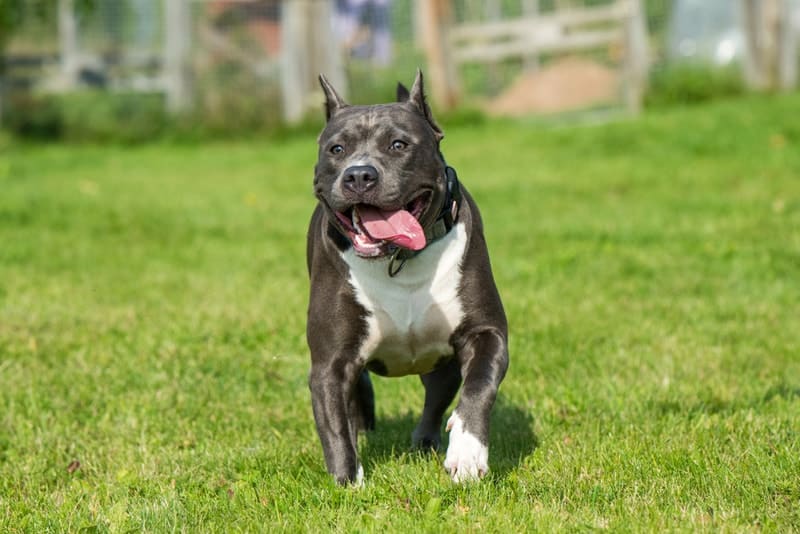
What the Statistics REALLY Say
Analysis of dog bite-related fatalities (DBRF) in the US over the past two decades tell us that the data does not support the Pit Bull’s unfortunate reputation.
- 85% of dog bite fatalities are from unneutered dogs.
- DNA analysis has shown that around 60% of dogs identified visually as Pit Bulls contained no DNA of any of the breeds contributing to the Pit Bull.
- Almost 90% of DBRF occurred when there were no able-bodied adults present to intervene.
- More than 65 different breeds were implicated in DBRF between 2016 and 2022.
- There have been no scientific studies that support the belief that any one breed is inherently more dangerous than others.
If They Do Bite, Their Bites Do More Damage
When a smaller dog like a Chihuahua or a Pug bites, it’s likely not going to cause as much damage as a larger, more powerful breed. This means it’s less likely for a person to report the bite, making it impossible to track how aggressive these smaller breeds are.
Meanwhile, when a larger dog like a Pit Bull bites, it’s far more likely to cause some serious damage. This means a large number of Pit Bull bites get reported, leading to a misleading impression that Pit Bulls are more aggressive than other dog breeds.
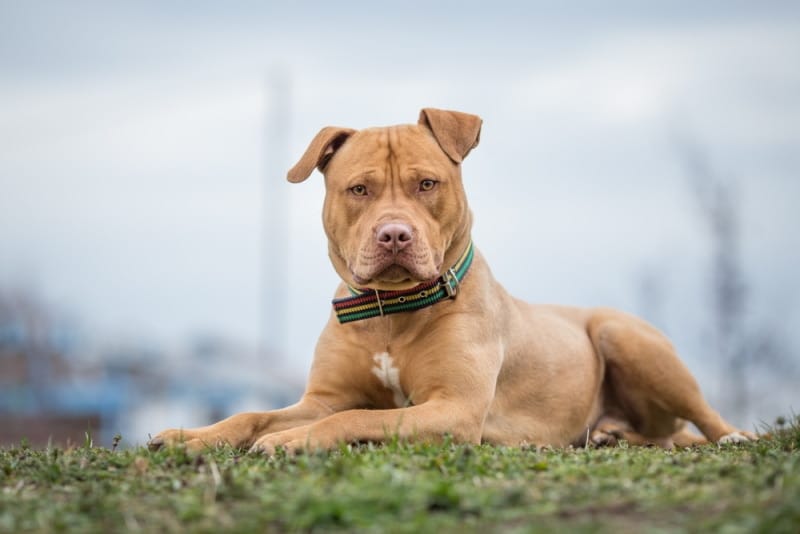
Legal Ramifications
While it’s not fair, some breeds’ reputations have led to them being banned in many places. To date, there are over 900 cities that ban Pit Bulls, and for the cities that do allow them, you can almost bet that there are restrictions on where and how they are allowed to be kept. For example, some apartment complexes and landlords include breed restrictions in their leases.
The True Traits of Pit Bulls
We’ve narrowed down that Pit Bulls truly aren’t an aggressive breed and that their bad reputation comes from a variety of factors, including a media bias against Pit Bulls. But what traits do they really have?
Well, just like we can’t label a breed as aggressive based on the actions of just a few, we also can’t make a blanket statement about the behavior and temperament of the entire population of Pit Bulls, however, based on the knowledge from those who work, live, and interact with them on a daily basis, we can get a much clearer picture of typical Pit Bull personalities.
Pit Bulls are often characterized as being incredibly affectionate and loving dogs, and all they want is to be a big lap dog in your home! In fact, they’ve even been nicknamed the “nanny dog” by many. When you socialize them properly, they generally get along with everyone, and they only have moderate energy levels, so they’re not running you ragged.
Pit Bulls are excellent pups with a poor reputation, but when you get to know them, you soon learn their poor reputation couldn’t be further from the truth!

Final Thoughts
Pit Bulls have been given a bad reputation based on misleading information and skewed data. Being technically a cross breed, it is common for dogs of similar appearance to be mistakenly identified as Pit Bulls, and research shows that more than half of these identifications were incorrect.
What we do know is that in the vast majority of fatal dog attacks, the common trends include:
- unneutered males
- poorly controlled dogs
- dogs left unsupervised
- a wide range of different, large breed dogs with powerful jaws
There is no scientific evidence that Pit Bulls, or any other breed, are predisposed to aggressive behavior. Responsible dog ownership, including neutering, early socialization, and supervision will always be the most effective ways to reduce the risks of dog bite injuries and death. Breed specific-legislation based on this misinformation will be far less effective in reducing DBRF, and more emphasis should be placed on identifying individual dangerous dogs and the conditions that allowed attacks to occur.
If you are worried about sharing your home with a Pit Bull, don’t let misinformation and a bad reputation put you off. However, if you would like to welcome a Pit Bull into your household, we recommend neutering, early socialization, enrichment, and training to ensure you are giving your pet the best possible chance.
Featured Image Credit: Sophia Tr, Shutterstock

